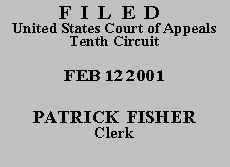

| P. S. MOHANKUMAR,
Plaintiff-Appellant, v. JOHN D. DUNN, individually and in his official capacity; KANSAS STATE UNIVERSITY, Defendants-Appellees. |
|
Plaintiff brought this employment discrimination action pursuant to 42 U.S.C. §§ 1981, 1983, and 2000e, alleging that the University discriminated against him on account of his race in not hiring him for a teaching position. A jury returned a verdict for defendants, and the district court entered judgment accordingly. Plaintiff filed a motion for a new trial, which the district court denied. He was allowed an enlarged amount of time in which to file an appeal and now appeals the district court's judgment, as well as its denial of his motion for a new trial. Exercising our jurisdiction under 28 U.S.C. § 1291, we affirm.
On appeal, plaintiff presents four arguments, all of which take issue with evidentiary rulings made by the district court. Evidentiary rulings are reviewed for an abuse of discretion and will be overturned only if this court has "a firm and definite belief that the trial court made a clear error in judgment." Macsenti v. Becker, Nos. 98-6485 & 99-6012, 2001 WL 50699, at *11 (10th Cir. Jan. 22, 2001). We also review the ruling on the motion for a new trial for an abuse of discretion. United States v. Austin, 231 F.3d 1278, 1281 (10th Cir. 2000).
Plaintiff's first point of alleged error is that the district court abused its discretion in excluding as hearsay testimony by Dr. Kenney about a statement made by a deceased person at a faculty meeting. We agree with defendants that the record shows that, contrary to plaintiff's position on appeal, he did seek admission of the statement for the truth of the matter asserted, and the statement was not subject to any exception to the hearsay rule. Further, we note that the district court's order excluded only the hearsay statement, not the minutes of the meeting. To the extent the district court actually excluded the minutes, however, the ruling was not an abuse of discretion because plaintiff was allowed to cross-examine defendant Dunn as to any deletions from the minutes.
Next, plaintiff takes issue with the district court's refusal to admit into evidence a draft report relating to the University's administrative review of plaintiff's discrimination charge, as well as its refusal to allow plaintiff to elicit witness Dawn Anderson's opinion of defendant Dunn's credibility. The district court concluded that documents generated in the administrative-review process, as well as the opinions and conclusions of the review committee, including Dawn Anderson's opinion of Dunn's credibility, were not relevant and should not be admitted. We see no clear error of judgment in this decision.
Third, plaintiff complains that defendants should not have been allowed to call Dr. Oorjitham to testify because he was identified as a possible witness only eight days before trial. The district court heard plaintiff's objections to the witness, as well as defendants' response that there had been sufficient time for plaintiff to request a conference with the witness, but that he had not done so. After letting the parties know it was not pleased with the late identification of the witness, the court reserved its ruling until it could see the nature of the testimony at trial. At the close of plaintiff's evidence, the court finally ruled that Dr. Oorjitham would be allowed to testify, given the nature of the evidence plaintiff had presented. The record shows that the district court carefully considered the issue and we cannot say it abused its discretion in its ruling.
Finally, plaintiff argues that the district court abused its discretion in denying his motion for a new trial. As justification for a new trial, plaintiff re-argues the district court's evidentiary rulings. Just as we see no abuse of the district court's discretion in its various evidentiary rulings, we see no abuse of discretion in its denial of the motion for a new trial.
AFFIRMED.
Entered for the Court
Circuit Judge
*. This order and judgment is not binding precedent, except under the doctrines of law of the case, res judicata, and collateral estoppel. The court generally disfavors the citation of orders and judgments; nevertheless, an order and judgment may be cited under the terms and conditions of 10th Cir. R. 36.3.